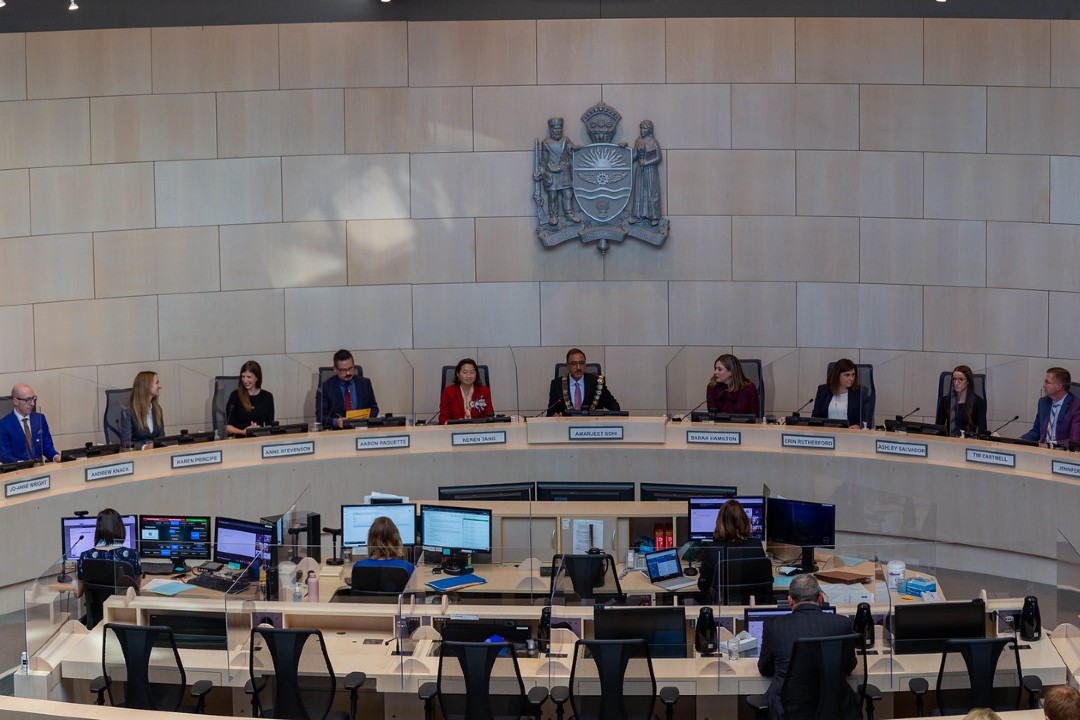A motion that pushed for a rethink on how Edmonton's council can work on city spending using zero-based budgeting passed following its recent budget vote, and could offer both opportunities and challenges, Taproot's council watchers said on Episode 289 of Speaking Municipally.
Is zero a hero?
Once the current budget adjustment passed on Dec. 5, and with it the 2025 property tax increase of 6.1%, Coun. Andrew Knack put forward a subsequent motion directing administration to work toward zero-based budgeting for its deliberations on the next four-year budget cycle, from 2027 to 2030. That motion passed 8 to 4 (councillors Ashley Salvador, Keren Tang, Erin Rutherford, and Jo-Anne Wright opposed). The motion was presented by Knack, who will not seek re-election in 2025, and stems from his collaboration with Coun. Tim Cartmell, who is running for mayor and who has been critical of how council can work on budgets.
Knack's motion, which calls for a "line-by-line" approach to review budgets during the next cycle, for administrative departments to make presentations to council at budget time, and for Edmonton to benchmark other cities to understand how its budget stacks up, could signal how council feels about its current limitations to change budgets, managing editor Tim Querengesser said.
"There is frustration you can sense among all the councillors in the (existing) process," Querengesser said. "We start out with an established budget and we adjust it. We wiggle here and we wiggle there, but really, we can't make any structural changes. I think they're all frustrated with that."
Guest co-host and Taproot curator/reporter Stephanie Swensrude expressed doubts that zero-based budgeting would be plausible in practice. However, she added, council may need a "drastic" option. "Maybe that's what needs to be done — to have a big reset."
Co-host Mack Male noted that true zero-based budgeting in Edmonton is currently impossible because the city is locked into a funding formula with the Edmonton Police Service through 2026. He expressed skepticism the zero-based model will actually make it into practice. "It seems to me that this process will cost more than it's worth," Male said.
Votes against the operating budget
The operating budget adjustment passed 8 to 4, with councillors Sarah Hamilton, Jennifer Rice, Karen Principe, and Cartmell voting against. Male noted that Cartmell did not put forth any motions to reduce the budget. Rice, meanwhile, presented several motions that have been heavily critiqued. Despite this, Male also called attention to Knack's acknowledgment that all of council (aside from the absent Coun. Aaron Paquette) voted in favour of cuts.
"Even though (Cartmell) didn't introduce his own motions, Knack's point is everybody contributed to reductions in some capacity here," Male said. "I thought that was an interesting way to try to build a little bit of collaboration around the approach to (the) budget."
Housing and the 2025 election
Male, Querengesser, and Swensrude presented questions that voters may want to ask of candidates about housing during the 2025 municipal election. The conversation built off of Taproot's Housing Complex series and Swensrude's piece on what the City of Edmonton can and can't do with housing, in particular.
The Dec. 13 episode of Taproot's civic affairs podcast covers much more on the operating budget and the Housing Complex series. Find all the ways to listen to and subscribe to Speaking Municipally, which comes out most Fridays, right here.

